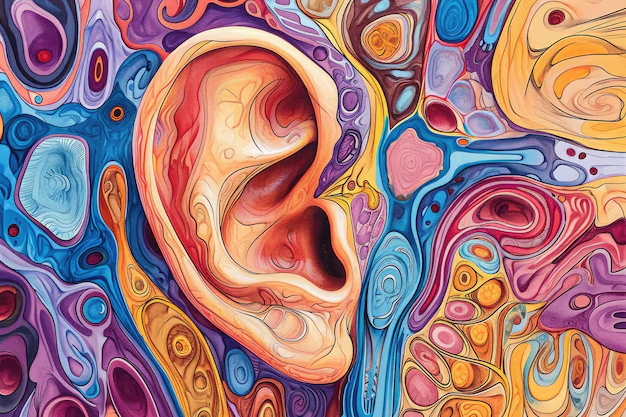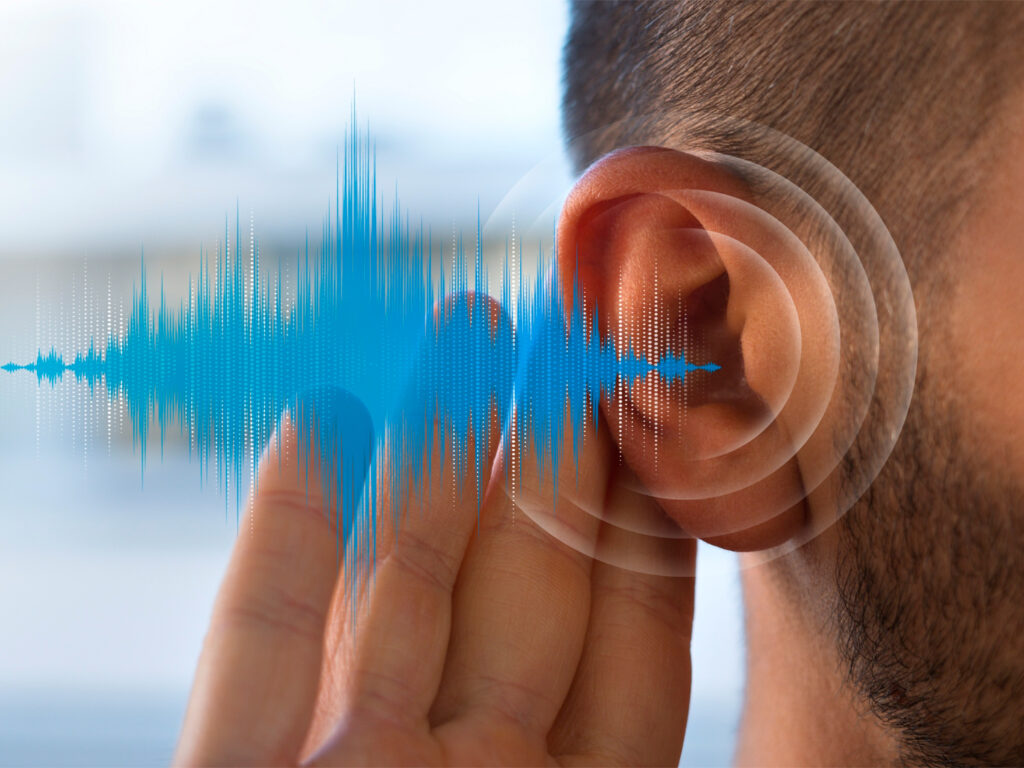That constant soundtrack in your ears that nobody else can hear? It’s not just annoying—it’s downright disruptive to your daily life. If you’re one of the millions of Americans experiencing this persistent ringing, buzzing, or whooshing, you’ve probably wondered what on earth is causing it and how to make it stop.
While many of us immediately blame obvious suspects like loud music or aging, what if the real culprits are hiding in plain sight—like your morning coffee ritual, how you handle a tough day, or even last night’s takeout?
The Mystery Sound: More Than Just an Annoyance
First things first: that phantom noise in your ears isn’t just in your imagination. It’s your body’s way of waving a red flag that something’s out of balance. And while it might feel like you’re stuck with it forever, understanding potential everyday triggers could help you turn down the volume.
“For two years, I just learned to live with the constant ringing,” says Jamie, a marketing executive from Boston. “Nobody suggested looking at my daily habits as possible contributors.”
Is Your Coffee Cup the Culprit?
That morning brew might be doing more than just waking you up—it could be cranking up the volume on that annoying ear noise too. Caffeine affects everyone differently:

How Caffeine Might Affect Your Ears
- It can make you more sensitive to sounds
- It can disrupt sleep, which may make ear ringing seem louder the next day
Sarah from Portland decided to experiment: “I tracked when my ears seemed noisiest for a month and noticed the sound was consistently louder on days I had more than one cup of coffee. Just cutting back to my morning cup made a noticeable difference.”
But here’s the interesting part—some people actually report that caffeine helps their ear ringing! The relationship is highly individual.
The Practical Coffee Approach
Instead of going cold turkey, try this step-by-step experiment:
- Track your baseline: Note how your ears feel for a week while maintaining your normal coffee routine
- Reduce gradually: Cut back by one cup per day each week
- Pay attention: Notice if certain times of day or amounts seem to affect your ears
- Find your balance: Determine if there’s a “sweet spot” where you can enjoy some caffeine without the unwanted sound effects

Remember: moderation is key. For many people, one morning cup doesn’t seem to cause problems, while that afternoon pick-me-up might be the tipping point.
Stress: Turning Up the Volume
Had a particularly challenging day? Notice your ears seem louder than usual? That’s no coincidence—there’s a clear connection between stress and that persistent ringing.
How Stress Affects Your Inner Soundscape
When you’re stressed:
- Your body goes into alert mode
- Your sensitivity to sensory input increases
- Muscle tension builds, especially in your neck and jaw
- Your attention becomes more focused on potential “threats”—including that ringing
“It’s like a snowball effect,” explains Alex from Chicago. “The more stressed I get, the louder the ringing becomes. The louder the ringing, the more stressed I feel about it.”

Breaking the Cycle: Simple Daily Practices
The good news? Simple stress-management techniques can help interrupt this cycle:
- Box breathing: Inhale for 4 counts, hold for 4, exhale for 4, hold for 4. Repeat for just 5 minutes.
- Progressive relaxation: Starting at your toes and working upward, tense each muscle group for 5 seconds, then release completely.
- Sound environments: Creating pleasant background soundscapes can help mask the ringing and reduce stress simultaneously.
- Mindful moments: Even 5-minute breaks to focus on your surroundings can help your brain turn down the volume.
Many people notice significant improvement after incorporating just one of these practices into their daily routine—often within weeks of consistent practice.

The Dinner Dilemma: Foods That Might Be Fueling the Fire
That delicious meal might be satisfying your taste buds while irritating your ears. Certain foods and ingredients have been linked to increased ear ringing:
Salt: The Sneaky Offender
Excessive salt can lead to fluid retention and affect the delicate balance in your inner ear. The average American consumes about 3,400mg of sodium daily—significantly more than the recommended amount.
Hidden sodium sources include:
- Canned soups and vegetables
- Processed meats
- Restaurant meals
- Bread and baked goods
- Condiments and sauces
“I never considered myself a ‘salty’ eater,” shares Michael from Austin. “But after paying closer attention to food labels, I realized I was getting way more sodium than I thought. Cutting back made my ears feel clearer within just a couple weeks.”
Other Food Factors to Consider
Some people notice their ears act up after consuming:
- Flavor enhancers: Common in fast food, snacks, and some restaurant dishes
- Artificial sweeteners: Found in diet sodas and sugar-free products
- Wine and aged cheeses: These contain compounds that some people find problematic
- Caffeine-containing chocolate: Especially dark chocolate in the evening

The Food Detective Approach
Keeping a simple food journal alongside notes about your ear ringing can reveal surprising connections. Try this easy method:
- Rate your ear noise on a scale of 1-10 each morning and evening
- Note what you ate that day, focusing on categories rather than every ingredient
- Look for patterns after two weeks
- Experiment with reducing suspect foods for a week to see what happens
Many people discover that while no single food is the villain, certain combinations or quantities can make a noticeable difference.

Beyond Food and Drink: Other Daily Habits That Might Matter
While your morning coffee, stress levels, and diet are major players, don’t overlook these other potential everyday factors:
Sleep Quality
Poor sleep can make ear ringing seem louder the next day. Try these simple adjustments:
- Create a consistent sleep schedule (yes, even on weekends!)
- Consider using gentle background sounds to mask the ringing at night
- Keep your bedroom slightly cool (65-68°F is ideal for most people)
- Limit screen time in the hour before bed
Screen Time and Digital Habits
Our increasingly digital lifestyle might contribute to ear ringing through:
- Eye strain: Creates tension that can affect how we perceive sounds
- Neck positioning: “Text neck” affects muscles connected to your ears
- Volume levels: Especially when using headphones
Try the 20-20-20 rule: Every 20 minutes, look at something 20 feet away for 20 seconds. Your ears might thank you as much as your eyes do!
Jaw Tension
Do you clench your teeth when concentrating or grind them at night? This jaw tension can contribute to ear ringing. Simple awareness of jaw position throughout the day can make a difference.
Creating Your Personal Ear-Friendly Lifestyle Plan
Everyone’s triggers are different. Here’s how to create your personalized approach:
- Start a simple tracking system: Note when your ears seem better or worse
- Change one thing at a time: Modify a single factor (like caffeine intake) for at least two weeks before evaluating results
- Consider a brief elimination experiment: Remove common trigger foods for a few weeks, then reintroduce them one by one
- Build your toolkit: Develop a collection of go-to strategies that work specifically for you
Remember, small changes add up. Many people find that addressing multiple lifestyle factors leads to significant improvement, even if no single change eliminates the problem entirely.

When to Reach Out for Support
While lifestyle adjustments can make a big difference for many people, sometimes additional support is helpful. Consider connecting with a wellness professional if:
- Your ear noise begins suddenly
- You experience dizziness alongside the ringing
- The sound significantly impacts your quality of life
- You’re feeling overwhelmed by the constant noise
Remember: you’re not alone in this experience, and many resources exist to help you navigate it.
You Have More Control Than You Think
Living with unwanted ear sounds doesn’t mean you’re powerless. By identifying and managing everyday triggers like caffeine, stress, and dietary factors, many people achieve meaningful relief without complex interventions.
Start small, be consistent, and give your adjustments time to work. That annoying buzz might never completely disappear, but turning down its volume can make a world of difference in your daily life.

Disclaimer: This article is for informational purposes only. The content offers general lifestyle suggestions based on personal experiences and is not intended to replace personalized advice from healthcare professionals. Always consult qualified professionals with questions about your specific situation.
Sources:
American Tinnitus Association
National Institute on Deafness and Other Communication Disorders
British Tinnitus Association
Journal of the American Academy of Audiology
Better Hearing Institute
Hearing Health Foundation



